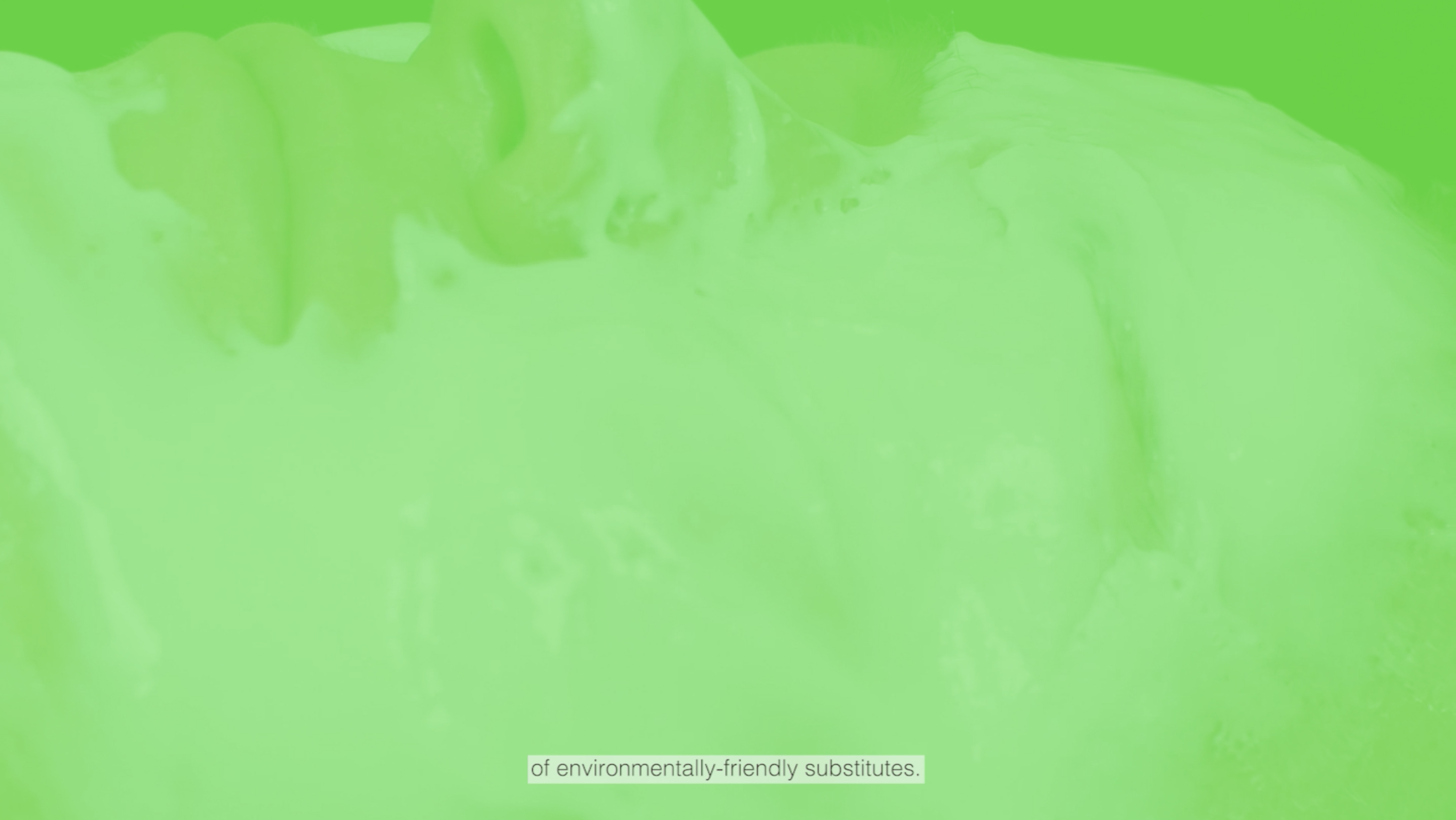Algae Dream (2020)
Single-channel video, sound, 10:03mins.
Awarded Juror’s Special Mention, D-normal/V-essay Zine,(link) Floating Projects Collective, Hong Kong.
In collaboration with Michelle Lai.
This video essay envisions masks as an emblem for open-source eco-consciousness- functional, accessible DIY living wearables made with biomaterials, such as algae. The work further rides on the sleek language of market economy to smudge the fine line between fiction and reality. In the bricolage of source videos and original footages, motivational video mock-up and authentic presentation documentation, the film intends to challenge audience in a multiplicity of narrations stemmed from discourses of business and science, displacing viewers within the muddy ground of faith and evidence.



 ︎︎︎Film still
︎︎︎Film stillJuror Notes:
Source + 10-min full video (link)
The 10-minute work is a much needed effort to challenge disciplinary boundaries and what amounts to a timely video essay. Much needed: there is a lot of room between personal confession and scientific instruction that could be playfully experimented in the domain of a video essay. Timely: there is the urgency to make sense of our fast deteriorating human conditions. Algae Dream is a fine supplement to the rather impoverished and biased discussion of the pandemic, and it proves artistic methods could be relevant.
Using the first person “I,” Li achieved an artistic documentary that is at once personal and curious of scientific realities. These days, our routine media platforms are jammed with scientific images such as those of COVID-19, which weigh on us with an authority we have no way to reject. Yet perhaps they are simply pseudo-scientific, or pure visual strategies – how do we know, and what do we really understand from them? What I like about this work is that images do not push for objective accuracy: somewhere between concrete forms and poetry, they impress on us the power of imageries, a kind of perceptual apprehension requiring inquisitiveness over analysis, whereas the voice-over affirms the place for doubt and enquiry without losing the magic of curiosity. Neither the “I” nor the work pretends to be authoritative. At points, it is a reading report, a confession of doubt and helplessness, commanding critique, and other points it simply forces us to see imaginatively what is supposed to be invisible.
Though sticking to a scientific discourse of health and disease, the work is strongly affinitive with critical theory issues, in exposing the “class” base of progressive values such as green life, sustainability, organic life-style and so on. Though overall inspirational, the tentacular thinking employed cleverly links the algae to the mask, from the originary of life forms to contemporary symptoms of the Anthropocene, thus imploring renewed eco-consciousness from its readers. As well, Algae Dream cleverly imbues queer thinking into a refreshed understanding or our relation to other species.
A rich conceptual map that persuades with poetry and artistic overtones. Following her unique documentary impulse, Li aptly finds the aesthetic and poetic to discuss science without being dogmatic… and allows science to be contemplated poetically without the burden of objective absoluteness. (Linda C.H. Lai)